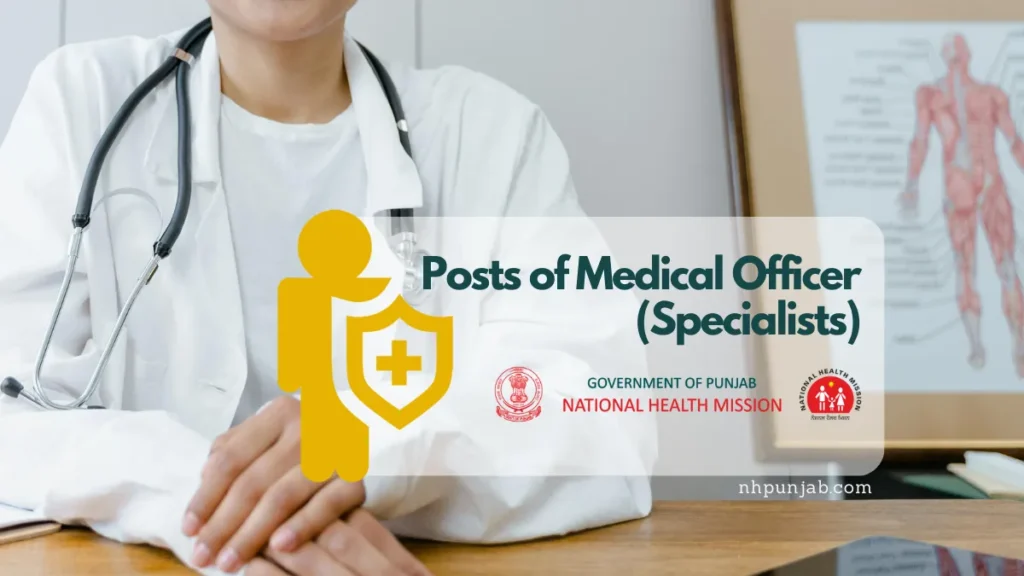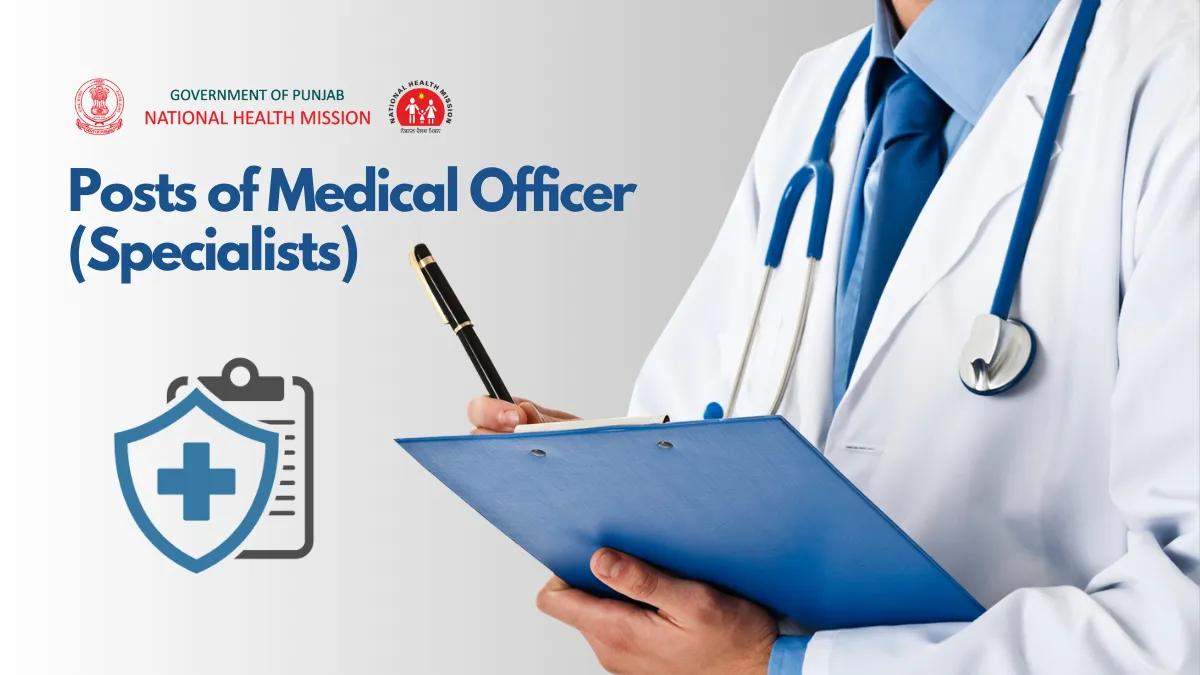Walk-in Interviews for Posts of Medical Officer (Specialist) in 2025
As healthcare demands rise globally, the recruitment of skilled professionals remains a top priority for governments and institutions in 2025. One effective method gaining traction is the walk-in interview process for Medical Officer (Specialist) positions, offering a swift and direct hiring approach.
These interviews, scheduled across various regions, aim to fill critical vacancies with qualified doctors specializing in fields like cardiology, orthopedics, and emergency medicine. With the current date being March 26, 2025, several recent announcements highlight this trend, reflecting a proactive response to staffing shortages in the medical sector.
This recruitment strategy not only accelerates the hiring process but also provides opportunities for specialists seeking immediate employment. Unlike traditional application methods, walk-in interviews allow candidates to present their credentials in person, fostering direct engagement with employers.
This article explores the latest developments, eligibility criteria, and broader implications of these walk-in interviews for Medical Officer (Specialist) posts, shedding light on their growing significance in today’s healthcare landscape.
A Surge in Healthcare Recruitment Efforts
The need for specialized medical officers has intensified due to aging populations, rising chronic diseases, and evolving healthcare technologies. In response, institutions like the National Health Mission (NHM) and Employees State Insurance Corporation (ESIC) have rolled out walk-in interview schedules in early 2025 to address urgent staffing needs.
For instance, recent notifications from districts in India, such as Ladakh and Lucknow, invite MBBS graduates and specialists to attend interviews for contractual roles, ensuring rapid deployment to underserved areas.
Moreover, these initiatives reflect a shift toward flexible hiring practices in the healthcare sector. By bypassing lengthy online applications, employers can quickly assess candidates’ qualifications, experience, and availability, which is crucial in a field where delays can impact patient care.

This approach also appeals to doctors who prefer immediate job placement over prolonged recruitment cycles, making it a win-win for both parties.
Key Details of Walk-in Interviews in 2025
Walk-in interviews for posts of Medical Officer (Specialist) typically target doctors with advanced qualifications, such as MD, MS, or DNB degrees, alongside relevant experience. In many cases, candidates must bring original certificates, a completed application form, and identification to the venue, as outlined in official notices from health departments.
For example, a recent announcement from NHM Ladakh on March 22, 2025, called for local MBBS holders and specialists to attend interviews for fiscal year 2025-26 roles, emphasizing contractual positions with competitive pay.
Additionally, these events are often held at designated government offices or hospitals, with reporting times set between 9:00 AM and 11:00 AM to allow for document verification.
Age limits usually cap at 55 to 70 years, depending on the organization, while salaries range from ₹60,000 to ₹1,05,000 per month, reflecting the demand for expertise. Such details ensure transparency and encourage eligible candidates to participate confidently.
Why Walk-in Interviews Are a Game-Changer
The adoption of walk-in interviews marks a significant evolution in medical recruitment, offering several advantages over conventional methods.
Firstly, they reduce bureaucratic delays, enabling hospitals to onboard specialists within days rather than weeks or months, which is vital during health crises or seasonal surges in patient numbers.
Secondly, this format fosters a personal connection, allowing interviewers to gauge a candidate’s communication skills and professionalism—key traits for medical officers.
Furthermore, walk-in interviews cater to a diverse pool of talent, including recently retired specialists or those relocating to new regions. For instance, a specialist in cardiology might attend an ESIC Hospital interview in Delhi or Kerala, securing a role that aligns with their expertise without navigating complex online portals.
This flexibility not only fills vacancies faster but also enhances the quality of healthcare delivery by placing skilled professionals where they’re needed most.
Challenges and Considerations
Despite their benefits, walk-in interviews for Medical Officer (Specialist) posts come with challenges that warrant attention. One notable issue is the potential for overcrowding at venues, as large numbers of candidates may arrive simultaneously, straining administrative resources.
Also Read: Best Study Materials for Punjab PSC 2025 Preparation Guide
To mitigate this, some organizations require pre-registration via email or phone, ensuring a manageable turnout while maintaining the walk-in format’s efficiency.
Another concern is the limited preparation time for candidates, who must gather documents and travel to the interview site on short notice. This can disadvantage those in remote areas or with scheduling conflicts, potentially excluding qualified professionals. Nevertheless, the urgency of healthcare staffing needs often justifies this trade-off, as institutions prioritize speed and accessibility in their recruitment drives.
Broader Impact on Healthcare Systems
The rise of walk-in interviews signals a broader trend in healthcare workforce management, particularly in countries like India with vast and varied medical demands. By streamlining hiring, these events help address regional disparities, ensuring that rural hospitals and urban centers alike benefit from specialist expertise.
For example, contractual roles filled through such interviews often support emergency response units or specialty clinics, directly improving patient outcomes.
Also Read: What is health insurance? And why is it important in India?
Additionally, this approach aligns with global efforts to bolster healthcare resilience post-pandemic, as nations seek agile solutions to workforce shortages.
As technology advances and telemedicine grows, specialists hired through walk-ins can also contribute to hybrid care models, blending in-person and virtual consultations. This adaptability positions walk-in interviews as a forward-thinking strategy in an ever-evolving industry.
What Lies Ahead for Medical Recruitment
Looking forward, the popularity of walk-in interviews for Medical Officer (Specialist) posts is likely to grow as healthcare systems refine their hiring tactics. Experts predict that by mid-2025, more regions will adopt this model, potentially integrating digital pre-screening tools to enhance efficiency further.
This hybrid approach could balance the immediacy of walk-ins with the precision of technology, creating a seamless recruitment pipeline.
Also Read: Is Health Insurance Common Man Vital for a Healthy 2025?
Moreover, as competition for medical talent intensifies, institutions may offer incentives like higher salaries or relocation support to attract top specialists. For now, the focus remains on filling gaps swiftly and effectively, ensuring that healthcare services remain robust amid rising demands.
The success of these interviews in 2025 could set a precedent for future recruitment innovations across the globe.

